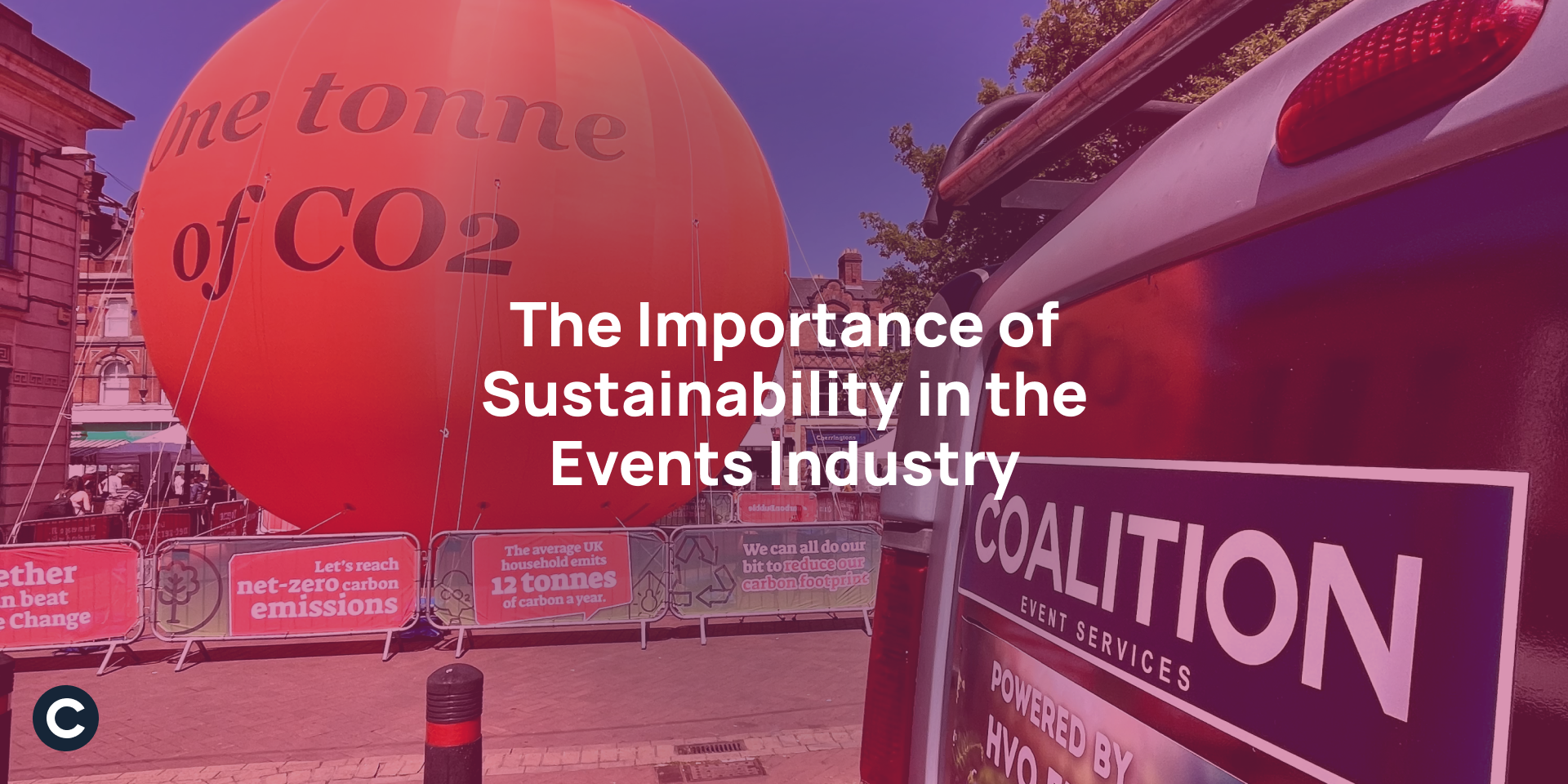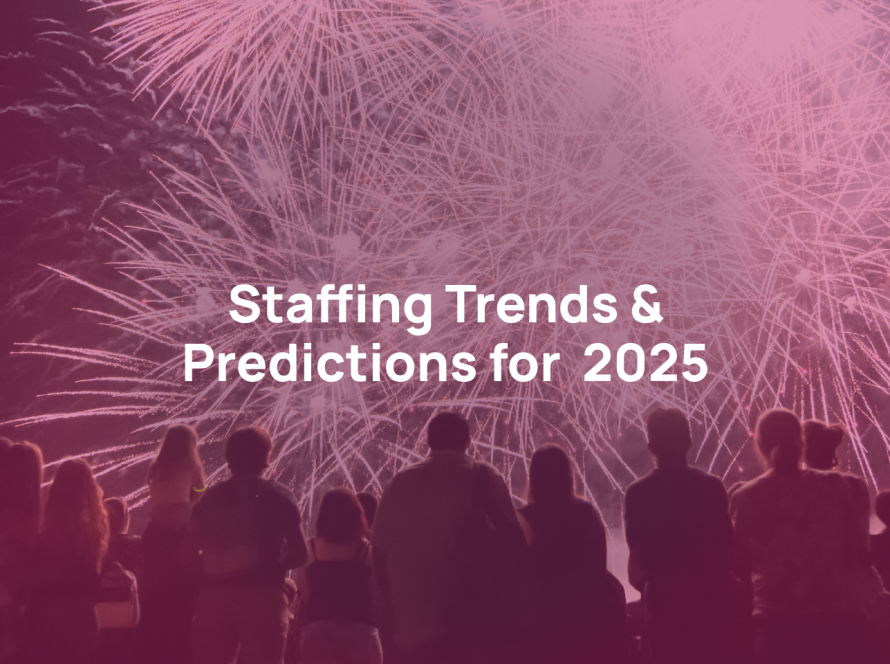In a world where sustainability and action against climate change are becoming ever more important, no industry can afford to be neglectful of eco-friendly and green initiatives with an increasingly eco-conscious society on the rise. The events industry is no different. Every year, events across the globe produce tonnes of waste (we’ve all seen the photos of campsites post-festival), churn out plenty of emissions from private travel, and waste an unthinkable amount of food.
Event sustainability can be summed up by 3 main aspects:
- Economic Sustainability: Concerns ensuring the financial success of an event without compromising ethical and sustainability standards. It involves prioritising local vendors and services to support local economies, fair trade practices, and generating economic benefits that are inclusive and directly impact local communities.
- Environmental Sustainability: is about reducing the ecological footprint of events. This could mean minimising waste through strategies like recycling or composting, optimising energy usage with efficient appliances or renewable energy sources, encouraging green transportation options for attendees, and sourcing materials and suppliers that are eco-friendly.
- Social Sustainability: considers the human aspect of the event, the impact on the attendees and the community at large. It means ensuring the event is accessible to all, regardless of physical ability or socio-economic status, fostering an environment that values diversity and inclusivity, and taking steps to ensure attendee well-being and safety.
The Net Zero Carbon Events Pledge
At the COP26 Climate Change Conference, the Net Zero Carbon Events Pledge was put forward, acknowledging the need to fight climate change and to eliminate the events industries greenhouse gas emissions by 2050.
By signing the pledge, organisations are promising to:
- Identify and prioritise actions to reduce emissions such as energy management, water conservation, materials management, food and beverage waste reduction, housekeeping initiatives, sustainable procurement, stakeholder management, and employee engagement and set goals accordingly.
- Address residual emissions, once they’ve been minimised, through the purchase of credible carbon offsets with efforts to transition to those that represent carbon removal/capture.
- Actively promote and advocate for net zero across the industry.
- Measure and track emissions according to industry best practice.
- Report on progress at least every two years by publishing key metrics and progress and to share best practices and lessons learnt.
You can read the full pledge here.
The Roadmap
The Net Zero Carbon Events roadmap sets out 5 key action areas where collaborative effort is needed to decarbonise. There are:
- Energy: Power events efficiently with clean, renewable energy.
- Production & Waste: Redesign events to utilise sustainable materials and be waste free.
- Food & Food Waste: Source food sustainably and eliminate food waste.
- Freight & Logistics: Move goods and equipment efficiently and transition to zero emissions logistics.
- Travel: Work with and influence partners in the travel sector to reduce and mitigate the emissions of travel to events.
So, what does this look like for event organisers, venues, and service providers? And how can you do your bit?
Energy
Commit to working with venues who have shown a measurable improvement in energy efficiency and use a high percentage of renewables.
Require venues and service providers to align with the industry renewable energy targets, and where that is not possible, organisers should work with venues to budget to offset the remaining emissions on an event by event basis.
Share any cost increases as a result of renewables being purchased.
Production & Waste
Sustainable booth / production / materials protocols / standards required as part of supplier contracts.
Events designed to minimise wastes, e.g. no single use carpets, no merchandise.
All products sourced are reusable or recyclable.
Food & Food Waste
Food waste sorting, composting, and donation required from all catering providers.
Practice of minimum amount contracting which results in significant food waste, to be ended.
Consider investing in shared community infrastructure to handle food waste better.
Seasonal food provided as the norm.
Encourage caterers to put commitments in place to move towards sustainable menus.
Develop local sustainable supplier lists for venues / cities so that produce can be sourced appropriately.
Freight & Logistics
Install EV charging stations.
Provide low carbon onsite vehicles, e.g. forklifts.
Work with exhibitors and sponsors to reduce the volume and weight of materials freighted to and from events.
Put systems in place to analyse carbon efficiency of logistics mode of transport – ship vs rail vs air – and decisions made accordingly.
Investments in electric fleets where relevant.
Travel
Provide supporting infrastructure such as EV charging points, bike storage, etc.
Work with destinations to provide free public transport tickets for event attendees.
Embed sustainable transport options / proximity to audience into decisions regarding event location to minimise travel emissions.
Where possible, promote only sustainability accredited or net zero hotels to delegates.
Provide hybrid options for remote attendance where possible.
Source crew / staff locally to reduce travel emissions.
Case Study: Coalition and Staffordshire County Council’s Sustainable Dreamhouse Project
In 2023, Coalition Event Services partnered with Staffordshire County Council to launch a sustainable roadshow across the Borough of Staffordshire. Central to this project was a 10-metre carbon bubble to depict what 1 tonne of carbon dioxide look like. This installation successfully raised awareness about carbon emissions and their environmental impact.
In 2024, Coalition and Staffordshire County Council partnered up again for the Climate Sustainable Dreamhouse project. The house was designed to showcase sustainable living practices and to provide an engaging and interactive experience for visitors.
We integrated sustainability into every aspect of the Dreamhouse project, from the house framing from beMatrix, known as ‘the most sustainable product on the market’, to the graphics made with Foamalux Xtra, a resilient PVC sheet with a black core made of up to 80% reclaimed content that is also 100% recyclable.
The Dreamhouse featured its very own power source – a solar panel installation. Additionally, the logistics of transporting the Dreamhouse across the borough were supported by a Hydrotreated Vegetable Oil (HVO) powered vehicle, reducing CO2 emissions by up to 90%.
You can watch a video all about our collaboration and the Dreamhouse on YouTube here.
Coalition have continued to work closely with Staffordshire County Council in 2025 as the sustainable projects of the Carbon Bubble and Dreamhouse continue to deliver engaging and educational events across the region.
About Coalition Event Services:
Coalition Event Services specialises in creating engaging and impactful events that drive positive change. With a focus on sustainability and community engagement, we strive to deliver experiences that inspire action and foster a better future for all.
To work with Coalition on your next event, contact our team.




